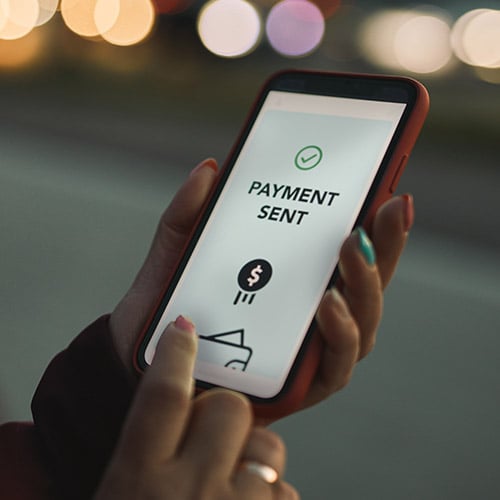Considering storing your credit card information for Black Friday to make that purchase easier? Before you hit “save,” let’s weigh the pros and cons of this time-saving option. Here’s what you need to know about protecting your sensitive data during the shopping season.
Is storing credit card information safe during Black Friday?
In the whirlwind of Black Friday shopping, it’s tempting to store your credit card information for faster checkouts. After all, snagging the best deals often means acting quickly. Yet, every time we store our payment details online, we create an entry point for potential security issues. This post dives into the safety of storing credit card information, including tips to make it safer—and how to keep an eye out for fraud once the holiday season kicks in.
Black Friday sales generated $9.8 billion in online spending last year, according to Adobe Analytics. That’s a lot of saved card information—and, potentially, data exposure. So, how can you balance speed with security?
When should you store credit card information?
If you’re looking for convenience, storing your credit card information can make Black Friday shopping smoother. Many online retailers offer secure payment storage to speed up your checkout experience, especially during those “limited-time-only” discounts. For shoppers frequenting reliable, high-traffic websites—especially those with robust security certifications—saving your card might feel like a practical choice. But there are cases when it’s wiser to avoid storing sensitive data, especially on lesser-known websites.
To monitor for fraud effectively, consider signing up for alerts from your bank or credit card provider and identity theft protection. These notifications can inform you of unusual charges in real-time, giving you a heads-up if something doesn’t look right. But remember: no site, regardless of security, is completely immune to breaches.
Risks and safety tips for storing your credit card information
Storing credit card information does come with risks. When you save payment details, they’re potentially vulnerable to hacks or data leaks—especially if you don’t take specific precautions. One significant risk is sensitive data exposure, which can happen during security breaches or if login credentials are compromised.
Here are a few tips to help reduce your risk:
- Use strong, unique passwords – Avoid using the same passwords across shopping sites. Consider a password manager for extra security.
- Enable two-factor authentication (2FA) – Many online stores offer 2FA, an added layer of security to ensure it’s really you logging in.
- Limit stored information to trusted retailers – Only store card details with reputable sites that have high-level security measures.
Safer alternatives to storing your credit card information include using virtual credit cards or one-time-use cards, which many banks offer through their apps. These alternatives provide the convenience of quick payment while protecting your main account details from unwanted exposure.
Signs of fraudulent activity to watch for after Black Friday
Once the shopping spree wraps up, don’t let your guard down. Fraudulent activity can often appear after large shopping events when cybercriminals know people are paying less attention. Here are a few signs to keep an eye out for:
- Unfamiliar charges – Watch for small or suspicious charges on your statement; they can be signs of a test transaction by fraudsters.
- Sudden drops in credit score – This could signal that someone has opened new accounts in your name.
- Changes in billing addresses – Any changes to your personal information without your knowledge is a red flag.
To stay protected, consider using a credit monitoring service like LifeLock to receive alerts and keep track of any unusual account activity. Services like these can notify you of possible identity theft early, so you can address it right away.
Keep your credit card info safe this shopping season
Black Friday deals are exciting, but your financial security is worth more. Staying cautious with stored payment information and keeping a close watch for any unusual activity can make a big difference. Don’t leave it to chance; get peace of mind with a protection plan tailored to your needs.
Editor’s note: Our articles provide educational information. LifeLock offerings may not cover or protect against every type of crime, fraud, or threat we write about.
This article contains
Related articles
Start your protection,
enroll in minutes.
Copyright © 2025 Gen Digital Inc. All rights reserved. All trademarks, service marks, and tradenames (collectively, the "Marks") are trademarks or registered trademarks of Gen Digital Inc. or its affiliates ("Gen") or other respective owners that have granted Gen the right to use such Marks. For a list of Gen Marks please see GenDigital.com/trademarks.




